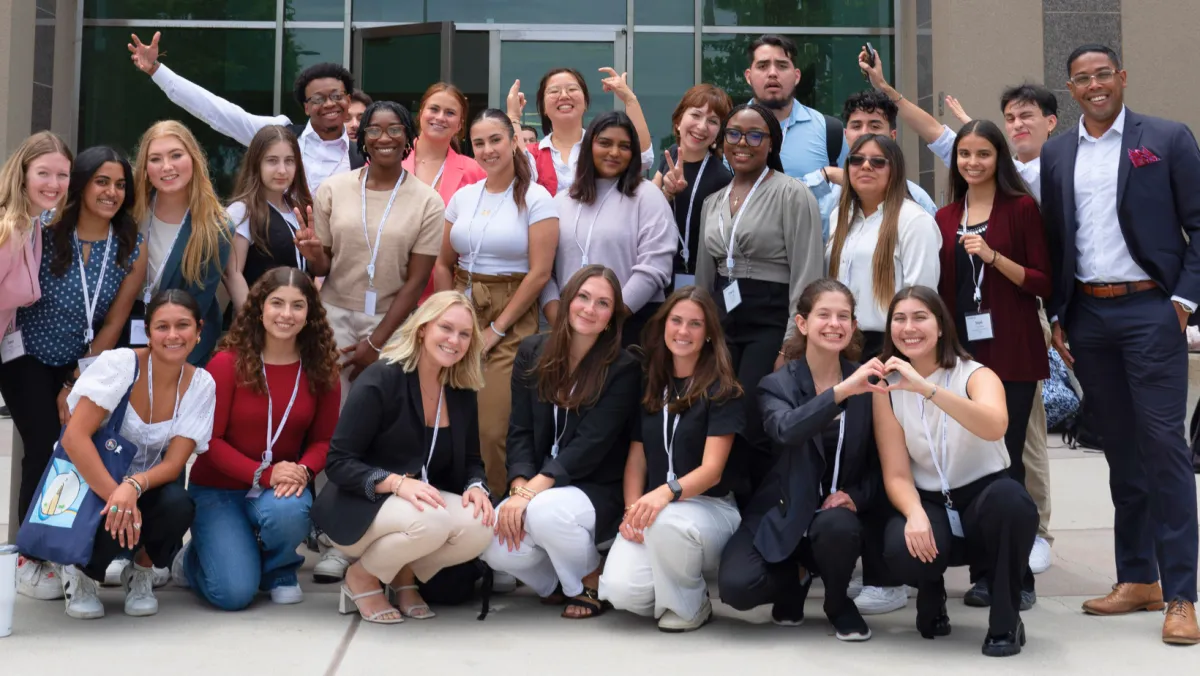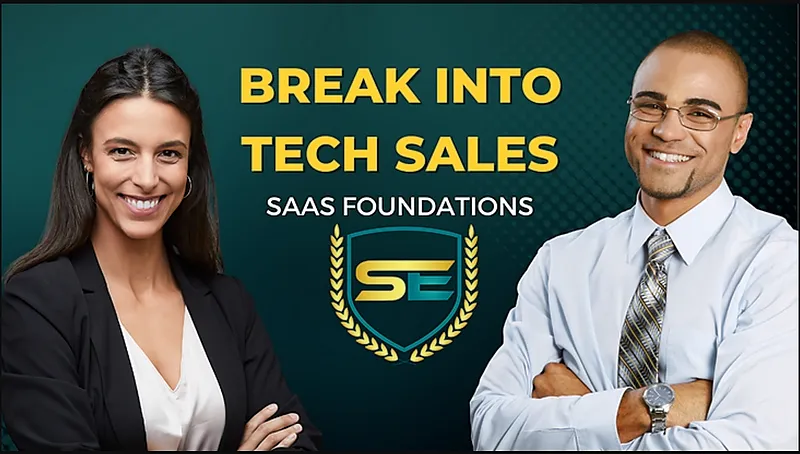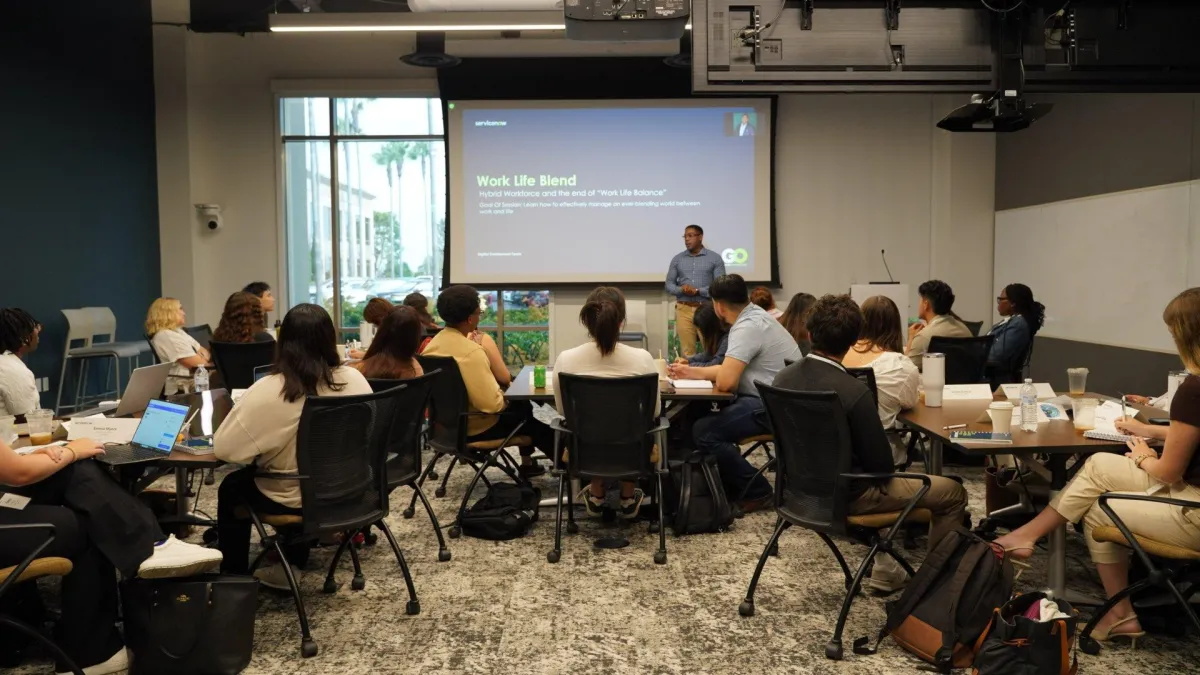Launch Your Career In Tech Sales
Equip yourself with the essential tools, knowledge, and skills needed to thrive as a Sales Development Representative (SDR) or Business Development Representative (BDR). Sign up for our FREE course to jumpstart your path to success

Join our Tech Sales Community, Sign Up for Free using the button below!
Are you ready to launch your career in the dynamic world of tech sales? Basecamp Sales Foundations is here to guide you every step of the way.
Our comprehensive program equips you with the essential skills and knowledge needed to succeed as a Sales Development Representative (SDR) or Business Development Representative (BDR).
Sign up now for our free course preview and embark on your journey to sales excellence!

Claim Your Free Mini Course & Break Into Tech Sales Today!
Embark on a Transformative Journey Towards Sales Excellence with Basecamp Sales Foundations: Dive into Our Extensive Curriculum Designed to Equip You with Essential Skills, Gain Valuable Certification, and Unlock Lucrative Job Opportunities in the Dynamic World of Tech Sales

Certification and Job Opportunity:
Upon completing the course, receive a prestigious certification recognized in the industry, validating your expertise and commitment to excellence in tech sales. Unlock the potential for career advancement with a unique job opportunity provided upon successful completion of the program, setting you on the path to a fulfilling and lucrative career in sales.
Personal Brand and Social Selling:
Learn how to craft a compelling personal brand that resonates with potential employers and clients, establishing yourself as a thought leader in the industry. Explore advanced social selling techniques to leverage platforms like LinkedIn, Twitter, and Facebook effectively, expanding your network and generating leads.
Objection Handling:
Master the art of handling objections gracefully and effectively, turning challenges into opportunities to further engage prospects and close deals. Gain insights into common objections faced in tech sales and acquire proven strategies and scripts to confidently address them, boosting your sales success rate.
18,000
Open Tech Sales Jobs
$70,000
Average Starting Salary
9%
Growth In Tech Sales Professionals
What are you waiting for?
Join our community sales professionals who have already embarked on their journey to success with Basecamp Sales Foundations. Sign up now to access our FREE course and accelerate your career in tech sales.

See What Our Customer Say About Us


Bruce, SDR

The Basecamp Sales Foundation team really just gives it to you straight. At first it may all seem hard but with the training and roleplaying that we did. It all became second nature. I love that you openly share the expectations for the role and prepare us for once we're in the field.


Cameron, SDR

Basecamp Sales Foundation did an awesome job on teaching us the basics of how to sell. This program really gave me the backbone and skill set to quickly get through the learning curve transitioning into the tech space.


Nate, SDR

Ashton has been great to work with since day 1. What i've learned most from being a part of this program has allowed me to land my dream job and allowed me to meet a community of leaders in the tech space. Ashton and his team will definitely help you reach your goals. Don't hesitate to join the academy.
Frequently Asked Questions
Answers to common skin care inquiries below
Who is Basecamp Sales Foundations for?
Basecamp Sales Foundations is designed for anyone looking to break into the tech sales industry, whether you're a recent graduate, career changer, or aspiring sales professional. Our program caters to individuals eager to kickstart their careers as Sales Development Representatives (SDRs) or Business Development Representatives (BDRs).
What does the certification entail?
Upon successful completion of the course, you'll receive a prestigious certification recognized within the industry. This certification validates your proficiency in essential sales skills and enhances your credibility as a tech sales professional.
How long does it take to complete the program?
The program consists of 40 lessons totaling approximately 4 hours of video content. However, the duration may vary based on individual learning pace and engagement with the course materials.
How can I access the course materials?
Upon enrollment, you'll gain access to our user-friendly online platform, where you can access all course materials, video lessons, assignments, and resources at your convenience. The platform allows you to track your progress, interact with fellow participants, and engage with instructors for personalized support.
Are there job opportunities available after completing the program?
Yes! We provide a unique job opportunity for participants who successfully complete the course. This opportunity offers a pathway to launch your career in tech sales, providing invaluable real-world experience and professional growth.
Is prior sales experience required to enroll in the program?
No prior sales experience is necessary to enroll in Basecamp Sales Foundations. Our program is designed to accommodate individuals at all skill levels, from beginners to seasoned professionals, providing comprehensive training tailored to each learner's needs.
How does Basecamp Sales Foundations differ from other sales training programs?
Basecamp Sales Foundations stands out for its holistic approach to sales training, offering a comprehensive curriculum covering essential topics such as resume optimization, LinkedIn branding, objection handling, and more. Additionally, our program goes beyond theoretical concepts by providing practical, actionable strategies and personalized support to help participants succeed in their sales careers.
What if I have additional questions or need assistance during the program?
Our dedicated support team is here to assist you every step of the way. Whether you have questions about course content, technical issues, or career guidance, our team is available to provide prompt and helpful assistance via email, live chat, or discussion forums within the online platform.
Meet Your Instructor

Ashton Tyler Harvey
CEO of The Significant Edge Academy
Dedicated Father, Husband, and Global Sales Enablement Leader on a mission to empower 1 MILLION sales professionals to achieve big wins in both life and business. Ashton has over 10+ years of sales and sales enablement experience training over 900+ sellers worldwide.
Optimize Your Job Search, Ace Your Interviews, and Start Your New Career
Significant Edge Sales Academy recruits, trains, and connects top sales talent from untapped markets with our amazing hiring partners who seek to add diversity to their growing sales organizations.
© 2023 Significant Edge Sales Academy, LLC Significant Edge Sales Academy, LLC
can not and does not make any guarantees about your ability to get results or earn any money with our ideas, information, tools, or strategies. Nothing on this page, any of our websites, or any of our content or curriculum is a promise or guarantee of results or future earnings. Any financial numbers referenced here, or on any of our sites, are illustrative of concepts only and should not be considered average earnings, exact earnings, or promises for actual or future performance. You alone are responsible and accountable for your decisions, actions and results in life, and by your registration here you agree not to attempt to hold us liable for your decisions, actions or results, at any time, under any circumstance
Copyright © 2023 Significant Edge Sales Academy, LLC. Privacy Agreement - Terms - Employer Terms - Coaching Terms
